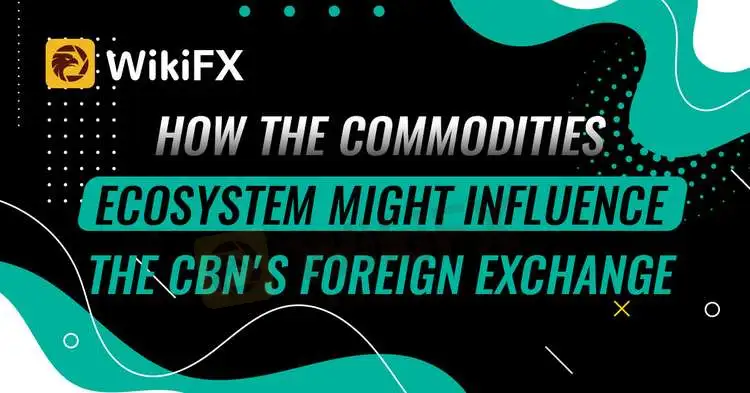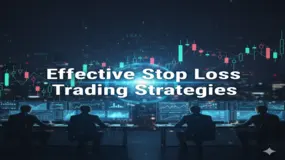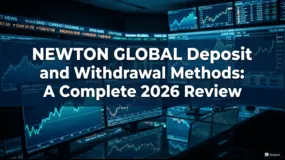HOW THE COMMODITIES ECOSYSTEM MIGHT INFLUENCE THE CBN'S FOREIGN EXCHANGE POLICY
Abstract:Bankers and other financial market participants in Nigeria have highlighted commodity ecosystem deployment as a mechanism for the Central Bank of Nigeria (CBN) to meet its objective to earn up to $200 billion yearly from non-oil exports over the next three to five years under its RT 200 FX policy.

Bankers and other financial market participants in Nigeria have highlighted commodity ecosystem deployment as a mechanism for the Central Bank of Nigeria (CBN) to meet its objective to earn up to $200 billion yearly from non-oil exports over the next three to five years under its RT 200 FX policy.
The stakeholders who assembled at a breakfast meeting organized by the Lagos Commodities and Futures Exchange (LCFE) over the weekend agreed that the proper use of Nigeria's commodities ecosystem provides the abundant potential for the apex bank to produce currency from non-oil exports.
Olugbenga Awe, Divisional Head, Agribusiness, Natural Resources, and Project Development at Heritage Bank, highlighted in his presentation that the Nigerian economy had been well-diversified, except for the sources of forex.
According to Awe, who spoke at the 'The Opportunities for Financial Institutions in the CBN RT 200 FX' event, a commodities exchange is a risk management tool.
According to him, the capacity to match global standards and demand is the most difficult hurdle facing Nigerian non-oil product exports. He noted that if Nigerian non-oil products satisfy global standards, they might improve foreign profits.
“This is where commodity exchanges come into play.” Any product with an electronic receipt that is exchanged on a commodities market must be of global quality.
“Banks are prepared to assist exporters if they satisfy specific requirements, such as a track record of success, export volume and frequency, payment methods, product sourcing strategy, risk mitigation, and seasonality, among others.”

Bode Abikoye, Managing Director of Agvest Nigeria, agreed, noting that commodity prices provide insulation from the consequences of inflation.
“Many experts advocate investing a portion of your portfolio in commodities as a diversifier asset class.”
Furthermore, some commodities, such as precious metals and energy items, tend to be ideal inflation hedges.
Investors divide commodities into two types: hard and soft. Metals such as gold, copper, and aluminum, as well as energy goods such as crude oil, natural gas, and unleaded gasoline, need mining or drilling.
“Soft commodities” are agricultural products such as maize, wheat, soybeans, and livestock. Commodities have a low to negative correlation with traditional asset classes such as equities and bonds.
“The major reason commodities prices fluctuate is due to supply-and-demand dynamics.” When a crop has a large harvest, its price normally falls, but drought circumstances might cause prices to climb due to worries that future supplies would be fewer than predicted, Abikoye explained.
Hajara Adeola, Chief Executive Officer of Lotus Capital, explained in her presentation on 'The Potentials of Non-Interest Financial Instruments to Finance Commodities Ecosystem' that non-interest financial instruments were based on managing businesses on moral principles, and that they offer many benefits to investors.
Akin Akeredolu-Ale, Managing Director of LCFE, explained in his welcome remarks that a commodities exchange would always come in by catalyzing an enabling environment, alignment of relevant stakeholders, a transparent trading platform, certification and standardization, data and price discovery, an enabling environment for price discovery, and a regulatory framework.

Related broker





Read more

Effective Stop Loss Trading Strategies
In a forex market where fundamental and technical factors impact the currency pair prices, volatility is expected. If the price volatility acts against the speculation made by traders, it can result in significant losses for them. This is where a stop-loss order comes to their rescue. It is one of the vital investment risk management tools that traders can use to limit potential downside as markets get volatile. Read on as we share its definition and several strategies you should consider to remain calm even as markets go crazy.

1Prime options Review: Examining Fund Scam & Trade Manipulation Allegations
Did you find trading with 1Prime options fraudulent? Were your funds scammed while trading on the broker’s platform? Did you witness unfair spreads and non-transparent fees on the platform? Was your forex trading account blocked by the broker despite successful verification? These are some issues that make the traders’ experience not-so memorable. In this 1Prime options review article, we have investigated the broker in light of several complaints. Keep reading!

EXTREDE Review (2026): A Complete Look at the Serious Warning Signs
This EXTREDE Review serves an important purpose: to examine the big differences between what the broker advertises and what we can actually prove. For any trader thinking about using this platform, the main question is about safety and whether it's legitimate. We will give you a clear answer right away. Our independent research, backed up by third-party information, shows that EXTREDE operates without proper regulation, creating a high-risk situation for all investors. The main focus of this investigation is the absolutely important need to check a broker's claims before investing. A broker's website is a marketing tool; it cannot replace doing your own research. The information that EXTREDE presents contains contradictions that every potential user must know about. A quick way to see these warnings gathered together is by checking the broker's live profile on verification platforms. For example, the EXTREDE page on WikiFX brings together regulatory status, user feedback and expert ri

NEWTON GLOBAL Deposit and Withdrawal Methods: A Complete 2026 Review
When traders look at a broker, they care most about how well its payment system works and what options it offers. You are probably looking for information about NEWTON GLOBAL deposit and withdrawal methods to see if they work for you. The broker says it has many modern payment options and promises fast processing times. However, a good review needs to look at more than just what it advertises. We need to check how safe your capital really is with this broker. One important factor that affects the safety of every transaction is whether the broker is properly regulated. Our research shows that NEWTON GLOBAL does not have any valid financial regulation from a trusted authority. This fact, along with a very low trust score, completely changes the situation. The question changes from "How can I withdraw?" to "Is it safe to invest here?" This background information is essential for protecting your capital.
WikiFX Broker
Latest News
Copy-Paste Broker Scams: How Template Websites Are Used to Impersonate Regulated FX Firms
BP PRIME Review: Safe Broker or Risky Broker
EXTREDE Review (2026): A Complete Look at the Serious Warning Signs
Promised 30% Returns, Lost RM630,000 Instead
You Keep Blowing Accounts Because Nobody Taught You This
HTFX Review: Safety, Regulation & Forex Trading Details
Effective Stop Loss Trading Strategies
Q4 GDP Unexpectedly Grows At 1.4%, Half Expected Pace, As Government Shutdown Hits Q4 Growth
Q4 GDP Unexpectedly Grows At 1.4%, Half Expected Pace, As Government Shutdown Slams Growth
Kudotrade Review 2026: Is this Forex Broker Legit or a Scam?
Rate Calc
